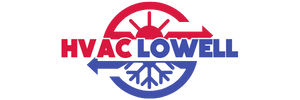Maintaining an efficient HVAC (Heating, Ventilation, and Air Conditioning) system is key for achieving comfort, energy savings, and prolonging your equipment’s lifespan. Whether you need to cool your home in summer or heat it in winter, a well-maintained HVAC system guarantees comfort while reducing energy expenditures. Follow this extensive guide for year-round HVAC efficiency.
Regular HVAC Service
Routine maintenance is vital for HVAC efficiency. Arrange for professional inspections and tune-ups twice a year—once ahead of the cooling season and once before the heating season starts. During these appointments, technicians will clean and inspect key components, including coils, filters, and ducts, to ensure everything operates efficiently. Regular maintenance helps identify and fix minor problems before they lead to expensive repairs.
Ensure Timely Air Filter Replacements
Air filters are essential for ensuring good indoor air quality and HVAC efficiency. Dirty or clogged filters impede airflow, making your HVAC system work harder and consume more energy. To maintain efficiency, inspect your filters monthly and replace them every 1-3 months, based on the filter type and your usage. Clean filters boost air quality and keep your HVAC system running smoothly.
Keep Air Vents and Registers Clear
Make sure that vents and registers are free from blockages caused by furniture, curtains, or other obstructions. Adequate airflow is critical for HVAC efficiency. Blocked vents can result in uneven heating or cooling, causing your system to work harder and leading to higher energy consumption and potential damage. Organize your space to ensure that air circulates freely throughout your home.
Ductwork Sealing and Insulation Tips
Leaky or insufficiently insulated ductwork can cause significant energy loss. Regularly check for leaks or gaps in your ducts and seal them with duct tape or mastic. Properly insulating ducts, especially those located in unconditioned areas like attics or crawl spaces, helps maintain the temperature of the air as it travels from your HVAC system to the rooms. Sealing and insulating ducts effectively improves efficiency and reduces energy expenditures.
Refine Thermostat Settings
To boost your HVAC system’s efficiency, consider using a programmable or smart thermostat. Set your thermostat to a comfortable temperature and align it with your schedule. For example, lower the temperature in winter while you’re away or asleep and increase it in summer when you’re out. Modern thermostats often feature automatic adjustment based on your habits, which can further optimize energy consumption.
Schedule Regular Coil Cleaning
The evaporator and condenser coils in your HVAC system are critical for heat exchange. Dirt buildup on these coils can reduce their effectiveness in heat absorption and release. Clean the coils annually or more frequently if there is noticeable dirt buildup. While professional maintenance typically covers coil cleaning, you can also perform light cleaning around the coils to prevent debris from affecting their performance.
Inspect and Manage Refrigerant Levels
Refrigerant is essential for cooling in your air conditioning system. Low refrigerant levels can signal a leak and negatively impact system efficiency. If your air conditioner isn’t cooling effectively or produces unusual noises, it’s time to have a professional assess the refrigerant levels. Maintaining correct refrigerant levels ensures optimal system performance and helps avoid potential damage.
Proper Insulation for HVAC Efficiency
Proper insulation in your home is crucial for maintaining indoor temperatures and reducing the strain on your HVAC system. Insulate your walls, attic, and floors to prevent heat loss during winter and heat gain during summer. Additionally, use weatherstripping around doors and windows to seal any gaps. Effective insulation minimizes the energy needed to heat or cool your home, thereby improving overall efficiency.
Incorporate Ceiling Fans into Your HVAC Strategy
Ceiling fans can support your HVAC system by promoting better air circulation. For summer use, set your ceiling fans to rotate counterclockwise to generate a cooling breeze. In winter, reverse the direction to help circulate warm air that has gathered near the ceiling. Ceiling fans improve air distribution, enabling your HVAC system to maintain an even temperature more efficiently.
Attend to Strange Sounds or Smells
Unusual noises or smells from your HVAC system could be a sign of underlying issues. Common problems include rattling, squealing, or burnt smells. These issues should be investigated and resolved by a professional as soon as possible to avoid further damage and ensure efficient operation. Failing to address these signs can lead to significant repairs and higher energy bills.
Opt for a Top-Tier HVAC System
If your HVAC system is old or often needs repairs, it might be time to think about upgrading. New HVAC systems are built with advanced technology that enhances efficiency and reduces energy usage. Investing in a high-efficiency system can save you money on energy bills and improve comfort. Consult with a professional to evaluate your existing system and determine if a new system is the right choice.
To keep your HVAC system running efficiently all year, you need a mix of regular maintenance, proper settings, and meticulous attention. Following these guidelines will improve system performance, elevate indoor comfort, and lower energy costs. A properly maintained HVAC system not only keeps your home comfortable but also contributes to a healthier environment and greater overall satisfaction.
Need {{category}}? Don't Panic!
Our expert team is available 24/7. We're here to help with all your emergency {{category}} needs. Don't wait, call us now!
